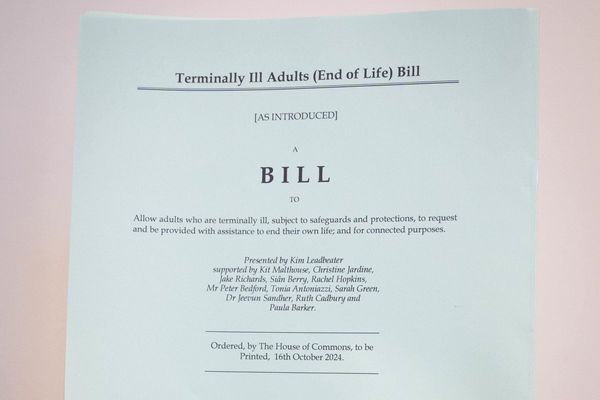
As an A&E doctor, I start every consultation these days by apologising for the long wait. For some of my patients, it means a scramble to organise emergency childcare. Others miss the window to access the best treatments for strokes or heart attacks.
The waiting room is a hotbed of emotion. My patients are understandably furious that they’ve been left in a windowless waiting room for hours with limited food and water, inadequate pain relief and little information about when they might be seen (aside from the hourly PA announcement that the current wait time is 15 hours and is expected to increase).
This is the backdrop to me joining the junior doctors’ strike today. NHS managers could have reduced waiting times by increasing our pay, encouraging more doctors and nurses into the sector. Instead, security guards are stationed in A&E to deal with patients’ rising anger.
For me, a turning point in supporting a strike was seeing workers in other trade unions win fair pay deals through taking industrial action – it has inspired many healthcare workers.
Since 2008 our pay has been cut by 26%. By the government’s own calculations, it would cost £28bn to raise every public sector worker’s wage in line with inflation. That’s £28bn that could have been invested in improving our struggling public services, but they have only gotten worse. Falling wages inevitably lead to falling standards of care.
At medical school we learned how to provide the highest quality medical care, but it’s now rare that I find myself in a position where I can give it. My time at work is occupied with navigating almost impenetrable bureaucratic systems, or dealing with frustratingly banal yet essential tasks, such as finding a working label printer to send off blood samples.
I was in the first cohort of students to pay £9,000 tuition fees, and as a result I graduated from university with more than £46,000 of debt. The first year I started working, my total debt went up as my salary wasn’t high enough to pay off the interest that my student loan was accruing. I expected that, after a year or two, I would be earning enough to be able to start paying off the debt, but even this year, after five years of working as a doctor, my salary is still too low to even cover the interest. No wonder many of my colleagues feel they have no option but to pick up extra shifts on their weekends and rest days, on top of the 48 hours a week that we already work, in order to achieve a decent quality of life.
In the past, high workloads were tolerated with the promise of a stable career and good pay progression, but this is no longer the reality. Almost all of my junior doctor colleagues are on fixed-term or zero-hours contracts. Competition ratios for medical training posts are often in excess of five applicants for every post, and even for a traditionally less competitive specialty such as general practice, there are more than twice as many applicants as there are posts available. For some trust grade posts, which come with no training, no pay progression and no stability, there are 10 doctors applying for every post.
The hospital seems to run more like a factory. Medical decisions, such as how to look after someone with abdominal pain, are reduced to algorithms and tick boxes, leaving little flexibility for the huge variety of patients we see. We’re moved to different wards each day, leaving no continuity of care for patients. Doctors are often forced to shoulder personal responsibility for the long waits and understaffing, being asked to churn through patients, ideally discharging them as quickly as possible.
Doctors, it seems, are seen as costs to be minimised. Apparently, those who treat patients the fastest are considered better “value for money”. To stand any chance of getting a permanent post we seem to have to be willing to stay late to complete audits and teach in our free time. Medical students are now expected to clock-in and clock-out of placement each day. I feel it is only a matter of time until the same processes are inflicted on doctors too.
Many of my colleagues have moved to Australia, where pay and conditions are better, or quit medicine altogether, and I can understand why. But I enjoy being a doctor. When the system works well, it’s brilliant. Whether deploying the latest pharmacological discovery or simply giving age-old antibiotics and intravenous fluids, doctors, nurses and other healthcare workers really can improve lives. I doubt I will ever quit medicine, but I can’t continue to work as things are.
There is now an atmosphere of camaraderie sweeping through hospitals. From doctors to nurses, cleaners to secretaries, we’re all getting active in our unions and preparing to win back our pay. This shouldn’t be a hard decision for the government: just give us what we are owed so we can go back to work. Until then, I’ll be on the picket lines.
Joanna Sutton-Klein is an emergency medicine doctor in Manchester and a member of the BMA council
Do you have an opinion on the issues raised in this article? If you would like to submit a response of up to 300 words by email to be considered for publication in our letters section, please click here.







